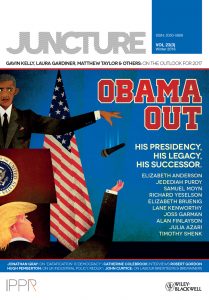The UK Election: How to lose friends (and still influence people)
Roy Jenkins famously described Tony Blair’s task in getting Labour into power in 1997 as “like a man carrying a priceless Ming vase across a highly polished floor”. This has now become something of a truism of electioneering. According to this view, winning power is about damage-limitation, about not messing up, and it implies a strategy of ‘triangulation’ – co-opting voters from other parties whilst keeping your own voters onside. It implies a certain lack of ambition, trying to carry as many...









